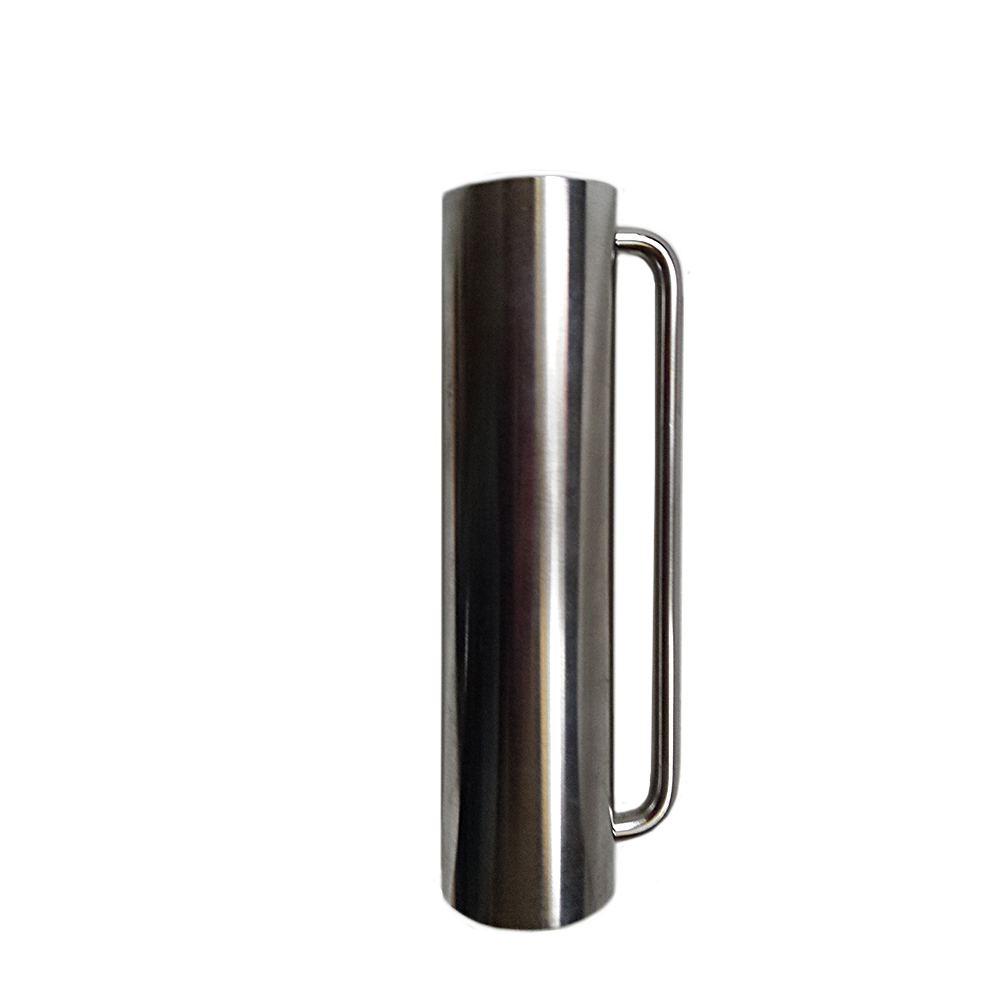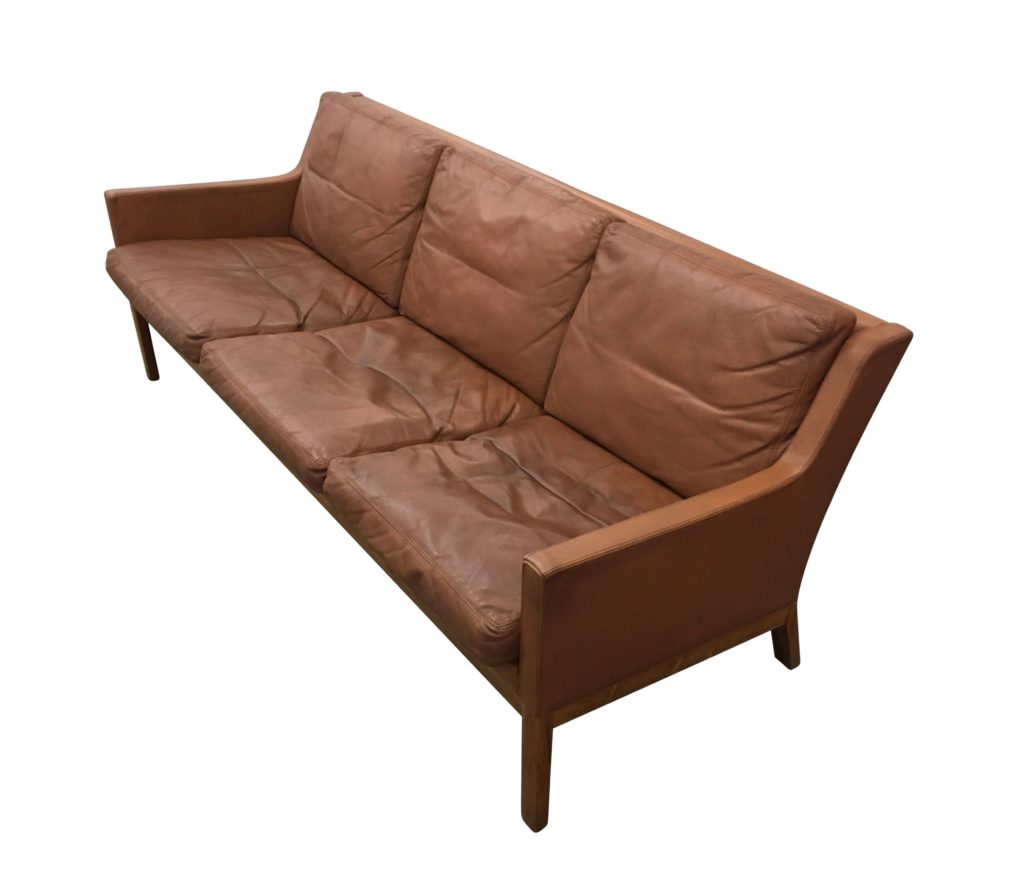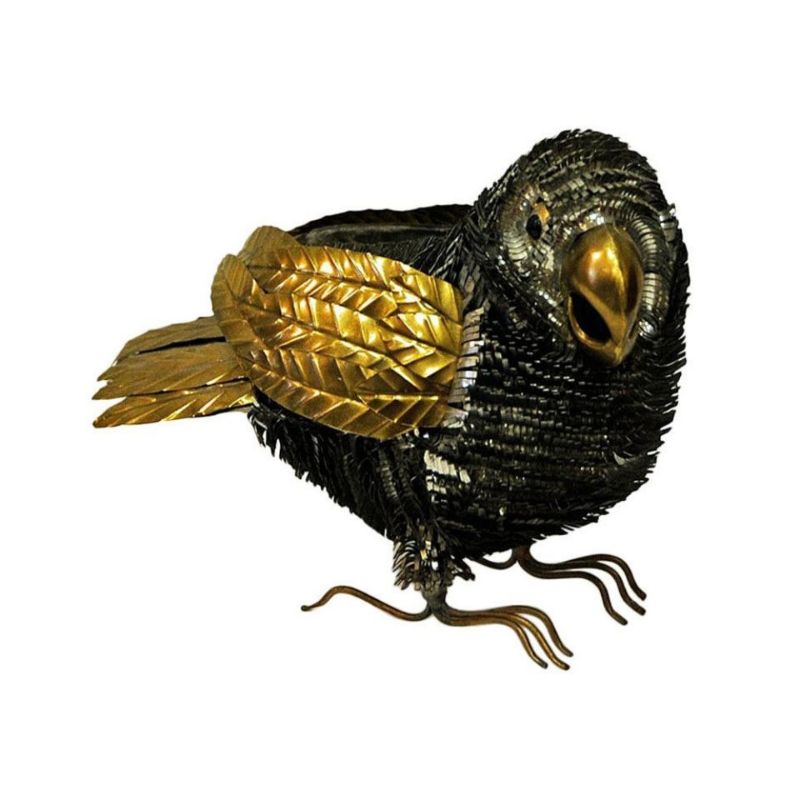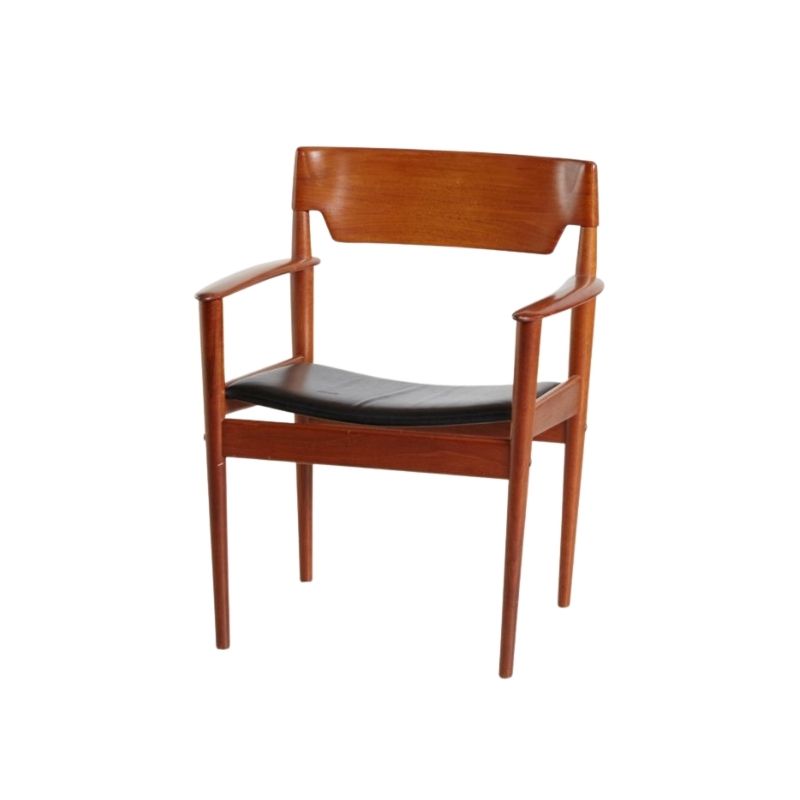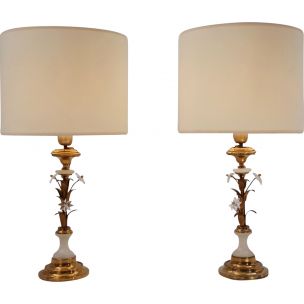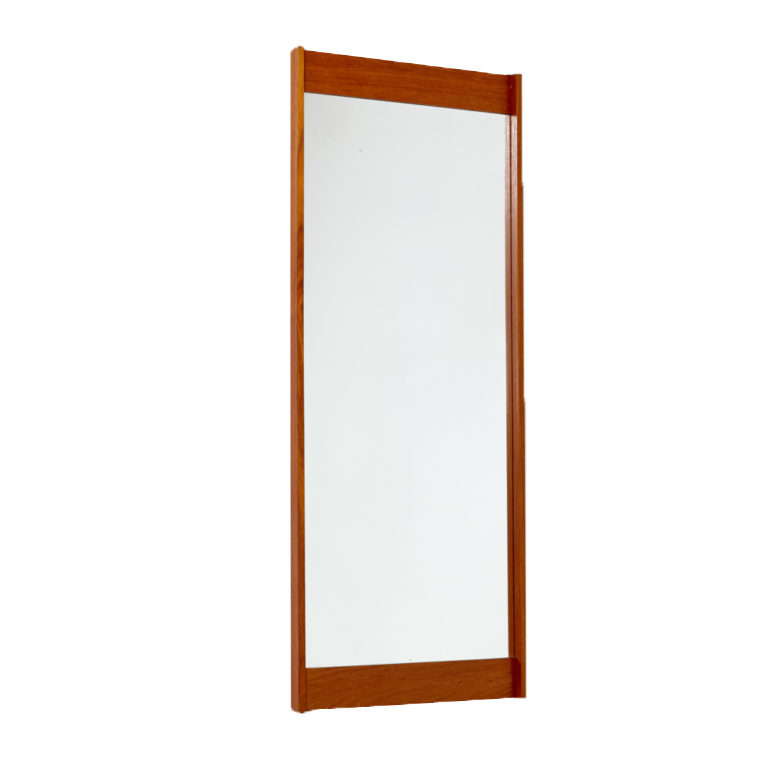You could always remove the...
You could always remove the other door and build two new doors that hinge down to open parallel to the floor...
It's going to be near impossible for someone without the proper tools or experience to be able to make a tambour door square enough to actually retract properly, let alone have the grain line up.
Yet another approach
that may be a bit easier for an avid DIY-er would be to cut the slats on a band saw outfitted with a fence and proper blade from teak-veneered plywood of the right thickness.
Sure, you'd still lose some material between each piece, but the kerf from a band saw blade is less than half that of a typical thin-kerf rotary blade and would be hardly noticeable on fairly straight-grained veneer. And starting with a pre-veneered panel would save a lot of misery.
it appears
from the photo that the original door started as a custom-laminated panel with the grain of the veneer and substrate oriented in the same direction. I suspect it was glued in one solid piece to the fabric backing, sliced partially through from the face, and then "broken" by flexing.
Probably
close to that, though I am not sure they would glue up a big panel of solid beech. I suppose you could, but you would have to be very precise about the initial width of the whole boards. Otherwise, you would end up with glue joints in several boards. There are none. It does look on close inspection that all was sliced at once, though. That is both veneer and substrate.
New look. After much helpful commentary from all, I looked at the top edge of the door more closely, and it is clear they were sliced from the front about 3/4 through, then snapped. The joints can be quite eccentric in the last 1/4 of the door thickness.
It seems to me the signature...
It seems to me the signature of a guillotine cutting through pre-veneered beech could well be a straight shear through the upper 3/4 of the stock, followed by an irregular break in the lower 1/4. Precisely what you are seeing. This effect is what you see with guillotine sheared steel.
Otherwise I am having an extremely hard time imagining a tool with such a fine blade it can shear (not cut) 3/4 of the way through beech without splitting the beech. And if such a tool exists why not finish the job and cut all the way through for a clean cut and no wasted time manually snapping.
Thanks for the intersting...
Thanks for the intersting discussion of how these tambour doors are cut. I recently viewed an auction where there was an Arne Vodder (Sibast) credenza and was amazed by the quality of the door construction.
The guillotine thing makes perfect sense and I can see why the guillotine stops short of cutting entirely through the wood in order to protect the canvas from damage.
Leif, imagine a mat-cutting machine
like picture-framers use with a sliding cutting head fixed to rails and the blade mounted perpendicular instead of angled with the depth of cut set to 3/4 of thickness. And remember that the cut is parallel to the grain and total thickness of the laminated panel is only about 1/4".
With this kind of set up I think it would be a straightforward if tedious job to successfully cut the slats. But, of course, you can't buy a pre-veneered panel like that off the shelf anywhere. 1/4" or 6mm A-1 teak plywood available in this country is laid up with alternating perpendicular plies and costs well over $100/full sheet. That's why I think the band saw approach might be better for a one-off.
Also, I think linen canvas and hide glue are the traditional backing for tambour doors, though there's no valid reason for not using appropriate modern synthetic fabrics or adhesives.
tktoo: You could be right. ...
tktoo: You could be right. Your scenario challenges my imagination because in my experience beech is too hard for me to think I could slice 3/16" deep with a razor blade by hand. But I could be wrong. I suppose I would have to try to know for certain.
Another option: micro kerf saw blades. Saw blades with a 1/16 inch kerf can be purchased. They aren't cheap: ~$200. But it might be the case that this would be little enough grain loss to preserve the "invisible" tambour effect.
Not a razor blade.
The knife blades for professional mat-cutters are much sturdier by comparison with edge geometry and alloys commensurate to the task. Seriously, I've probably cut more than a few thousand mats during my years in museums as well as countless pieces of glass, acrylics, wood, and various composite sheet goods.
BTW, the 6TPI X 1/4" blade on my band saw right now leaves a kerf a hair under 1/16" wide. You made me out and measure it!
Leif, buy a Dexter.
The venerable old chrome-plated standard that's designed to be used with a straight edge. It's what I started out with and what I still occasionally use. If you're gonna cut fewer than 50 mats a year, there's no need to spend a lot of money on yet another thing to store.
And when you get one, I'll turn you on to the tricks.
This is the micro kerf blade...
This is the micro kerf blade I am thinking of. (Amongst others). I don't use a bandsaw much, but when i have the blade has a tendency to drift and not cut a particularly straight line. This isn't a problem I have with a problem adjusted table saw. But Tktoo probably knows a trick for the band saw.
http://totalsawsolutions.com
I did
check those out blades yesterday or the day before. Very sexy. I think it could be pulled off quite well with rift sawn veneer, and you would not notice the loss of a slim kerf, but I was hoping to use the loopy grained flat sawn veneer for the same decorative effect the doors had originally.
If you need any help, please contact us at – info@designaddict.com



